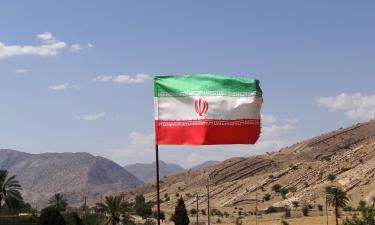Haskell Carter: Roadmap's Deadend
With Hamas and Islamic Jihad formally abandoning their cease-fire with Israel, and the Israeli leadership committed to full retaliation for the latest suicide attacks against Israeli citizens, it should be obvious to even the most sanguine that the roadmap for peace has finally reached a dead end
While certainly a somber development, given the context in which the Bush administration's peace plan was essentially promulgated, we should not surprised by the result. How did such an historic opportunity for peace falter so quickly? And what should be done to avoid a similar outcome in the future?
One would have thought that the grim history of so many previously failed attempts at peace would have suggested the need for a different strategy, a new approach toward resolving the Israeli-Palestinian conflict based on local realities rather than unrealistic contingencies. Yet, from its earliest pronouncement, the roadmap for peace has simply been more of the same. I'm specifically talking about the idea that any peace process between the Israelis and Palestinians be made contingent upon the cessation of all violence. Unfortunately, given their mutual animosity and suspicion, such a contingency is not only unrealistic but actually serves as a hindrance to achieving any sustainable progress toward a satisfactory two-state resolution.
When U.S. Sec of State Colin Powell --as so many have before him-- called for the immediate cessation of all violence at the start of the peace process, he inadvertently elevated the status of those who promote continued instability in the region to that of determinant agents of undue influence, thus rendering peace and more importantly the process hostage to the actions of acknowledged fanatics. Insisting on peace before process is simply a matter of placing the cart before the horse. Moreover, in the present context the language of peace itself may be responsible for inciting violence as it challenges the very raison detre of the militant elements on both sides.
The sad reality is that since the violence did not start over night, it is nothing less than futile and irrational to expect that it will simply stop that quickly. But that does not mean that the basis for the gradual diminishment of violence and its ultimate cessation does not presently exist. As counterintuitive as it may at first seem, for those genuinely interested in fostering a long-term constructive coexistence, process must be primary to peace. Consequently, it is time to put aside the emotive irrationality presently associated with the language of peace and instead begin a process of civil accommodation based on the rational self-interests of reciprocal engagement.
If recent opinion polls are accurate and the majority of Israelis and Palestinians now acknowledge the futility of their past actions to achieve their stated goals, namely security for Israel and statehood for Palestinians, then adopting a civil accommodation strategy would serve to 1) effectively marginalize fanaticism, 2) provide much needed psychological and physical benefits for the majority of Israelis and Palestinians and 3) open additional space for continued good faith measures that keeps the process moving forward.
Real progress was achieved in Aqaba, Jordon, when the Israeli Prime Minister Ariel Sharon accepted the road map and the Palestinian Prime Minister Mahmoud Abbas called for an end to the latest intifada. But without concrete actions taken by each, such pronouncements are nothing more than meaningless rhetoric. Though at the time both leaders appeared to accept such expressions as genuine and sincere, now they must once again commit and resolve themselves not to support actions that undermines the other's legitimacy and authority.
What is most essential for realizing any civil accommodation is the fact that current Israeli-Palestinian power disparities necessitates a rational and mature appreciation for their respective strengths and capabilities, as well as their weaknesses and limitations. While Israel certainly has every right to retaliate against those responsible for attacks on Israeli citizens that does not mean immediate retaliation is always the right response.
It terms of enhancing its security, Israel's reflexive launching of missiles and rolling out of tanks appears to have soothed more wounded egos than wounded citizens. But when process is paramount and circumstances do dictate action, Israel would do better to go covert with its preemption and retaliation while maintaining an overt implementation of civil accommodation. And it can begin that accommodation by finally seriously addressing the settlement issue, long considered by Palestinians (and an increasing number of Israelis) as a "major obstacle to peace."
To do so Israel should refrain from the usual Do-as-I-Say and Not-as-I-Do diplomacy as it has by insisting that the Palestinian Authority curb its militant organizations, while it steadfastly refuses to deal with its own militant elements within the occupied territories. Certainly concrete action taken by Israel on the settlement issue would enhance the limited popular support the Palestinian Authority so desperately needs to take effective action of its own. This would also serve to strengthen Israel's legitimate expectation for genuine reciprocity. The real potential political and social costs faced by both in this regard, should be the source for cooperative behavior and not an excuse for costly inaction. Still, like it or not, Israel's greater military strength and political authority incur a greater responsibility to act first.
Though the promise of Middle East peace has once again faded to the perfidy of violence, sufficient political will may yet restore some semblance of rationality to the Israeli-Palestinian engagement process. But be assured that the dubious dynamics of the much tried and failed approach of conditioning any process on the cessation of violence all but guarantees that the violence will continue and remain as senseless as ever. By contrast, where as the civil accommodation strategy by no means diminishes the insult and suffering caused by the grotesque loss of life experienced by both sides, its inherent rationality and tangible benefits will render the senseless meaningful in the ultimate achievement of peace for all.
Haskell Carter is a Fulbright scholar and currently serves as executive director for Minding the Millennium, Inc., a nonprofit globalization education program based in New York.
Subscribe to Pravda.Ru Telegram channel, Facebook, RSS!




